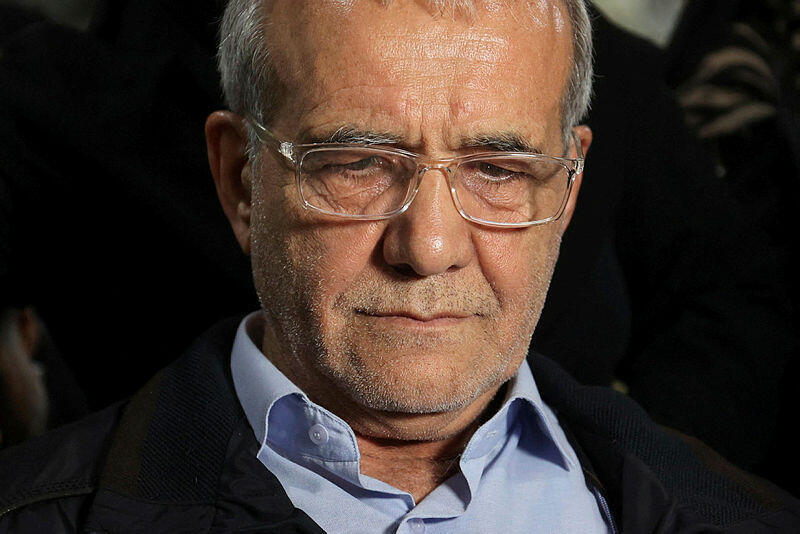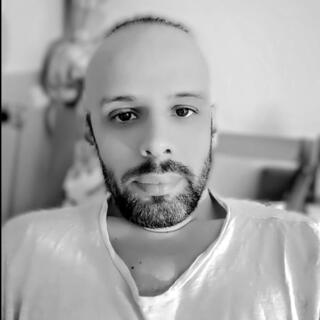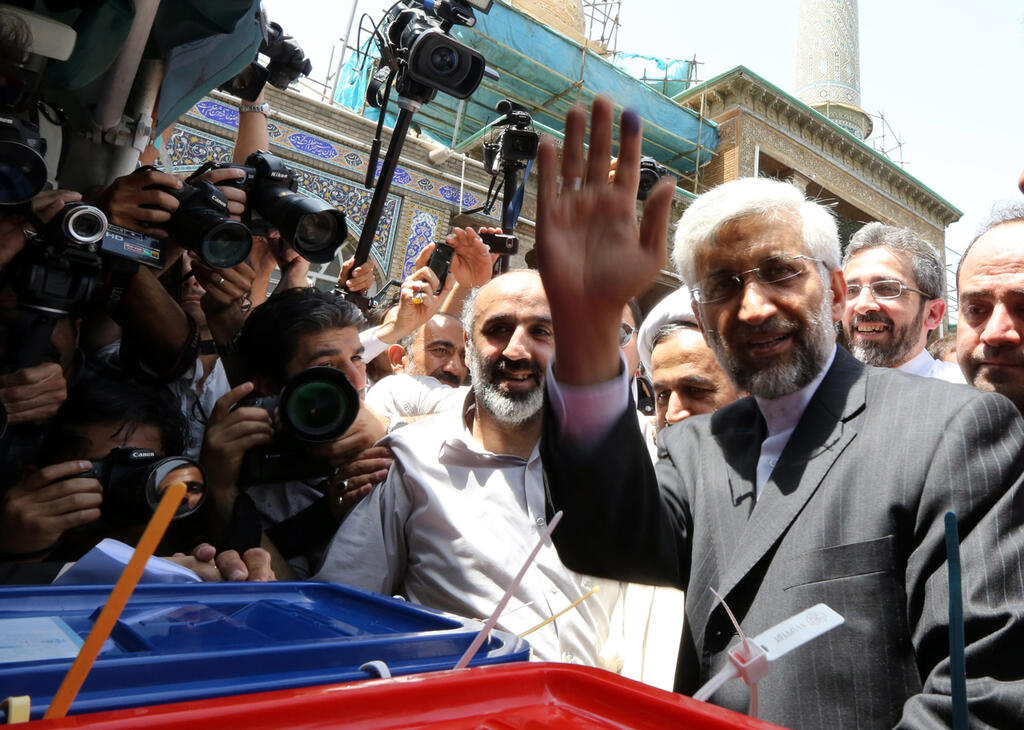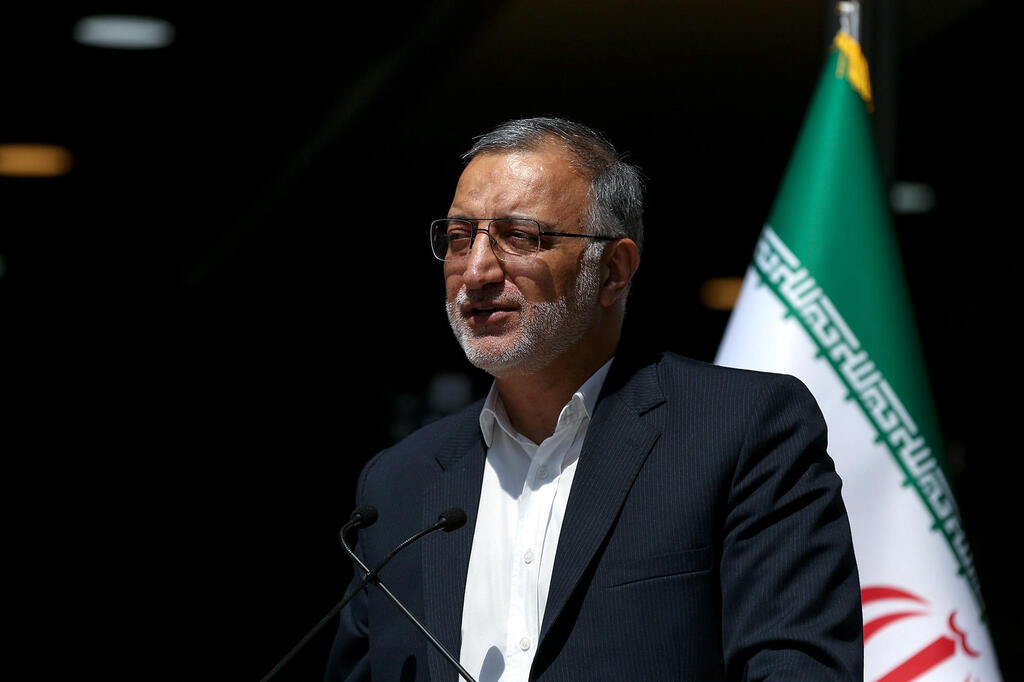Getting your Trinity Audio player ready...
Following the death of President Ebrahim Raisi in a helicopter crash, which also claimed the life of foreign minister Hossein Amir-Abdollahian, the Islamic Republic has been forced into a brief round of snap elections, but it isn't open to just anyone. Candidates must submit their names and the country's Supreme Council approves those it deems appropriate.
Surprisingly, former president Mahmoud Ahmadinejad, a Holocaust denier who was also the mayor of Tehran and served as the Islamic Republic's president from 2005 until 2013, has submitted his name for reelection but was rejected by the council. Six names have been approved, and they are:
Mohammad Bagher Ghalibaf
Ghalibaf is a prominent conservative politician, former military officer, and the current Speaker of the Parliament of Iran since 2020. His political career has been marked by various significant roles, including serving as the mayor of Tehran from 2005 to 2017, Iran's Chief of Police from 2000 to 2005, and the commander of the Revolutionary Guards' Air Force from 1997 to 2000.
6 View gallery


Mohammad Bagher Ghalibaf pictured after being elected as Iran's parliament speaker on May 28
(Photo: AFP)
Ghalibaf's academic background is notable, as he obtained a bachelor's degree in human geography from Tehran University, a master's degree in human geography from Islamic Azad University, and a PhD in political geography from Tarbiat Modares University. His military involvement began at a young age, when he served as one of the commanders of the defense forces during the Iran–Iraq War at the age of 19. He swiftly rose through the ranks, assuming leadership positions such as commander of the Rasulollah division and the Nasr Troops.
Following the 1999 protests, Ghalibaf was appointed as the chief of the Iranian Police Forces by the Supreme Leader of Iran, Ali Khamenei. His extensive military and political experience has positioned him as a significant figure in Iran's political landscape.
Ghalibaf's tenure as the mayor of Tehran was marked by both achievements and controversies. He has been associated with various corruption allegations and scandals, which have contributed to a mixed review of his leadership. Despite these challenges, his influence and role in Iranian politics remain substantial.
Masoud Pezeshkian
Born on September 29, 1954, Pezeshkian is a reformist politician who currently represents the Tabriz, Osku and Azarshahr electoral district in parliament. From 2016 to 2020, he also served as the First Deputy Speaker. Hailing from Mahabad, Pezeshkian was born to an Iranian Azerbaijani father and an Iranian Kurdish mother. His journey into the field of medicine began during his military service in Zabol after completing his diploma in 1973. It was during this period that he developed a keen interest in medicine.
6 View gallery


Pezeshkian attends a campaign event in Tehran, Iran June 14, 2024
(Photo: Majid Asgaripour/WANA (West Asia News Agency))
During the Iran-Iraq war, Pezeshkian played a dual role as a soldier and a doctor. He later held the position of Minister of Health in the cabinet of former President Mohammad Khatami from 2001 to 2005. Additionally, he has been an elected member of the Iranian parliament from Tabriz since the 2008 election and has been an active advocate for reform.
Pezeshkian's contributions extend beyond politics. He is also recognized as a Quran teacher and a reciter of the Nahj al-balagha, a significant text for Shia Muslims. Throughout his career, he has been vocal in criticizing certain aspects of the Iranian system, particularly during the protests following the 2009 and 2018 presidential elections.
In the aftermath of the 2022 protests, Pezeshkian called for the establishment of an assessment and clarification team to address the incident, emphasizing the need for a comprehensive review. In a 2022 interview, he went so far as to blame the regime for Mahsa Amini’s death, further stating "our behavior is making Iranians hate Islam, we must reexamine our methods; You cannot implement faith with force."
Saeed Jalili
Born on September 6, 1965, Jalili is a conservative politician and diplomat. He served as the Secretary of the Supreme National Security Council from 2007 to 2013 and is currently a member of the Expediency Discernment Council. Jalili also held the crucial role of Iran's chief nuclear negotiator.
Jalili's early life was marked by his participation in the Iran-Iraq War, during which he lost part of his right leg in the Siege of Basra, earning him the title "Living Martyr." Academically, he holds a PhD in Political Science and teaches "Prophet's Diplomacy" at Imam Sadiq University. He is proficient in both English and Arabic.
Jalili is a key figure within the "neo-principalist" faction of Iranian politics and a protégé of Mojtaba Khamenei. His influence extends beyond his political roles, as he is considered one of the 500 most influential people in the Muslim world.
In a 2006 interview with The Boston Globe, Saeed Jalili defended Iran's nuclear energy development plans by highlighting that, prior to the Iranian Revolution, U.S. companies had contracts to construct nuclear power plants in Iran under the Shah's regime.
In 2008, a leaked diplomatic cable revealed that a European Union official described Jalili as "a true product of the Iranian revolution." His reputation as a tough negotiator is well-established; Tehran University professor Mohammad Marandi noted that Jalili is staunchly committed to Iran's nuclear program and its sovereign rights, indicating that he is not inclined to make significant concessions.
Alireza Zakani
Born on March 3, 1966, Zakani is a conservative politician currently serving as mayor of Tehran, a position he has held since 2021. In addition, he has been an aide to the president of Iran, focusing on managing social issues in Tehran since 2023. Zakani's political career includes serving as a member of the Iranian Parliament from 2004 to 2016 and again from 2020 to 2021. He is also the owner of the Jahan News website and Panjereh Weekly.
He is a very recent addition to the list of candidates for president. Known for his conservative views and dubbed the "revolutionary tank," Alireza Zakani is making a return to the presidential race after stepping aside in 2021 to support Ebrahim Raisi.
Zakani's political career has been riddled with controversy due to his aggressive tactics, especially toward reformists. Despite his bold statements, he has faced substantial criticism, including from state media, which questions his suitability for higher office.
As mayor, his tenure has been fraught with issues, including disputes over urban policies such as the construction of mosques in parks and the enforcement of wearing the hijab on public transportation. These policies have led to internal conflicts within the conservative camp and the city council.
Zakani has also been embroiled in financial and familial scandals. One notable controversy involves his administration's decision to provide financial deposits to municipal managers for housing, which faced backlash from several city council members. Personal allegations have also emerged, including accusations of nepotism involving his son-in-law and questionable financial dealings by his daughter and her husband with the Islamic Development Organization. In his political past, he chaired the JCPOA (nuclear deal) commission in parliament during the 2010s. Initially presenting a neutral stance, he later became a vocal critic of the agreement.
Amir-Hossein Ghazizadeh Hashemi
Born in April 1971 in Fariman, Khorasan Razavi Province, Ghazizadeh Hashemi hails from a politically influential family. He is related to Hassan Ghazizadeh Hashemi, the former Minister of Health under President Hassan Rouhani, and Ehsan Ghazizadeh Hashemi, a current member of the Islamic Consultative Assembly (often referred to as the Majlis).
Ghazizadeh Hashemi's early involvement in the Iran-Iraq War at the age of 15, where he sustained a leg injury during the Siege of Om Al-Rasas in 1987, has significantly shaped his public image. This military service has earned him recognition and bolstered his standing among factions loyal to Supreme Leader Khamenei and war veterans.
6 View gallery


Ghazizadeh-Hashemi displays a document as he registers his candidacy for Iran's presidential elections
(Photo: ATTA KENARE / AFP)
He graduated as an ENT (Ear, Nose, and Throat) specialist from Mashhad University and has held various roles in the health care sector before fully committing to a political career. Ghazizadeh Hashemi first entered politics as a representative for Mashhad and Kalat in the Majlis, serving during the eighth (2005-2009), ninth (2009-2013), and tenth (2013-2017) legislative terms. He held the position of secretary in the Majlis presidium during his ninth and tenth terms. His political career is marked by his extremist views and alignment with the Principlist faction of conservative supporters of the Supreme Leader of Iran .
In the eleventh Majlis (2017-2024), he was elected as the First Deputy Speaker, demonstrating his rising influence within Iran’s legislative body. Since 2021, he has served as the Vice President and Head of the Martyrs and Veterans Affairs Foundation in the 13th government. This foundation is a government organization dedicated to supporting those injured or disabled during the Iran-Iraq war and the families of those who lost their lives.
On June 4, following the sudden death of former president Ebrahim Raisi, Ghazizadeh Hashemi registered for the immediate presidential election. Addressing journalists after his registration, he stated, “I remember our dear Imam, who with his foresight on the issue of Palestine, created a united front of resistance that will soon lead to the defeat of the child-killing Zionist regime and the definite victory of the Palestinian nation.”
He continued: “Today, I am here to state that the elements of power, including military and political capabilities, national security, territorial integrity, infrastructure, progress in important technologies such as nuclear, nano and aerospace, and the young, knowledgeable, and jihadist human resources, are all products of the Islamic Revolution and the jihadist and ideological movement. However, despite pride in the path taken, it is necessary to examine why, despite having numerous elements of power and progress, the dear Iranian family is faced with chronic issues and challenges that adversaries exploit to instill despair in them.”
Mostafa Pourmohammadi
Born on March 9, 1960, Mostafa is a seasoned politician and prosecutor who has held various significant positions and cabinet roles. He served as the Minister of Interior from 2005 to 2008 and as the Minister of Justice from 2013 to 2017. Pourmohammadi is reportedly implicated in the 1988 execution of MEK prisoners. He was born in the city of Qom, and was educated in Islamic jurisprudence, principles of jurisprudence, and philosophy at the Haqqani seminary in Qom.
He furthered his studies in advanced jurisprudence and principles in Mashhad, Qom, and Tehran, earning a level four degree in jurisprudence and Islamic law, equivalent to a PhD. From 1997 to 1999, he served as the acting deputy minister of information. He also held the position of member and head of the board of trustees at the Center for Islamic Revolution Documents. In 2003, Supreme Leader Khamenei appointed him as the head of the political and social department of his office.
6 View gallery


ourmohammadi sits while registering his name as a candidate for the June 28 presidential election at the Interior Ministry
(Photo: AP/Vahid Salemi)
Pourmohammadi has expressed a commitment to ending internet censorship, describing the internet as "the water for life" and acknowledging the disruptions caused by current censorship practices. He has pledged to appoint a minister dedicated to "ending the VPN game and guaranteeing the security of users" in response to widespread bans on social media and dissident websites, which have forced many Iranians to use virtual private networks (VPNs) to bypass these restrictions. These bans have intensified since the uprisings in Iran began in 2022.
His remarks have sparked controversy among Iranians, who are skeptical of his sudden advocacy against internet censorship.




